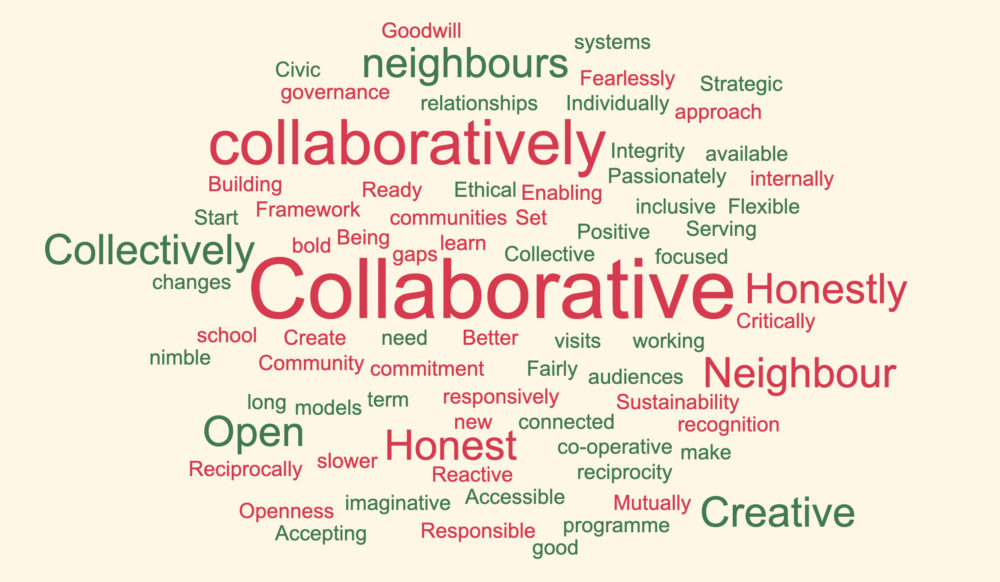Ethos
As part of the workshops museum staff shared words that summed up the ethos they would like to inform their work with Bradford. The words that predominated related to collaboration, reciprocity and openness. This exercise revealed how much staff have in common. Yet it was also clear that this shared ethos would not be possible to embed if the underlying issues revealed through the different headlines were not actively addressed.
We had it in our minds that Part 3 – focused on future directions for the role of the National Science and Media Museum in Bradford – would address ways of working. To help us think about this we asked staff to generate some key words that evoked how they would like to work with Bradford in the future.
Unlike in the headlines where divergences were clear, there was mostly a strong consensus in terms of ethos. Collaborative, reciprocal and open were key words supported by a plurality of associated words.

The most common words museum staff used to describe their desired ethos of working related to collaboration, openness and reciprocity. Image credit: Designed by Jade French
This set up very clearly that staff have much in common with each other and with collaborators they had worked with on Above the Noise and since. But it was also apparent that this shared ethos would not be possible to realise if the divergences which had been very present in our conversations since Above the Noise and were again revealed through the headlines, were not actively recognised.
I can’t say that we knew how helpful these two exercises would be when we designed them. The Headlines exercise was designed primarily as an icebreaker and while we thought we could aim to come back to the headlines in some way at the large final workshop, we weren’t sure how. In fact, the ethos exercise only came about as an initial exercise to ask staff to think explicitly about how ways of working failed with the first group, leading to a hasty rethink.
Yet when considered together the headlines and the final ethos/ways of working activities reinforced something very important that we had been trying to articulate since we tried the ‘working models’ work with the staff action research group, that the museum internally works with quite different worldviews and quite different paradigms. If you ask one type of question, one worldview might be drawn on by staff and if you ask another type of question another world view might be mobilised. So if you ask about ethos, you get collaboration. If you ask about headlines, you elicit a wider range of more contradictory paradigms. The challenge always seemed to be, at the very least, making the tensions between them more visible.
Helen Graham, Research Facilitator



